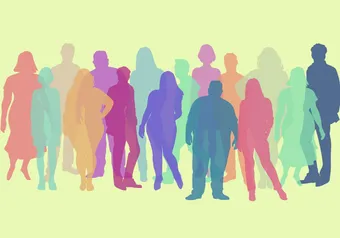The Gender+ in Research Collective, one of the two Collectives housed within the UBC Office of Regional and International Community Engagement (ORICE), aims to promote an inclusive research approach where gender and other aspects of identity are acknowledged and valued.
Search the Archive
You can stop holding your breath: the new Recreation Centre North is officially opening its doors on July 2 to fitness fanatics, intramural champions and everyone in between.
Back in the good old days (2016), you could tell if someone was gay based on their appearance. But now, Queerness is all ambiguous and nonchalant.
In an exciting conference that I accidentally stumbled upon after 45 minutes of looking for a passably clean washroom on campus, UBC unveiled a new course to be integrated into its curriculum in celebration of Pride Month.
As of June 20, one of the labour union Movement of United Professionals’ (MoveUP) AMS bargaining units includes a new component — 176 workers in the Food and Beverage (F&B) department, 114 of whom are students.
In conversations about trans issues, science is sometimes used as irrefutable proof to argue more socially conservative stances. Science, while often a fantastic tool, does have shortcomings, not the least of which being how it interacts with systemic prejudice to entrench that very sentiment, writes columnist Maya Tommasi.
Dr. John Paul “JP” Catungal recalls the moment he was first approached by a stranger on the topic of his own Queerness.
Wong’s displayed piece, “Chinese Cafes: The Five Energies,” was initially made for Them = Us, a photographic exhibition that travelled across Canada between 1998–2000 aimed at promoting diversity. Varied Editions is the first time “Chinese Cafes” has been unpacked since that viewing.
UBC’s Board of Governors (BoG) met at the Okanagan campus on June 20 to approve UBC’s strategic directions for the next five years and listen to an update on the university’s Climate Action Plan 2030.
Addressing the needs of 2SLGBTQIA+ individuals in sport has received limited funding and attention, often being cast off and separated from norms. While UBC is certainly not exempt from this issue, because of dedicated people and groups across campus, progress is being made.
While there is overlap between Trans and non-binary experiences, there’s still room for research surrounding the identities individually.
CampOUT! originally began as a day camp hosted at UBC and was inspired by a similar program at the University of Alberta, Camp fYrefly. It has since expanded with the support of UBC’s Faculty of Education, SOGI UBC and the Equity & Inclusion Office, as well as funding from community partners like Foundry — an inclusive care network based in Vancouver.
This administration has shown a genuine desire to engage those outside the AMS in its goal-setting and decision-making. While simply engaging with students and student organizers is far from sufficient to create an equitable AMS, this collaborative energy is a start, writes AMS Columnist Quyen Schroeder.
Several members of Sulong UBC were among the 100+ demonstrators gathered for a protest against the G7 leadership on National Indigenous Peoples Day on Saturday afternoon, taking over some of downtown Vancouver’s busiest streets to call attention to various anti-imperialist issues a week after world leaders met at the high-stakes summit in Kananaskis, Alberta.
















